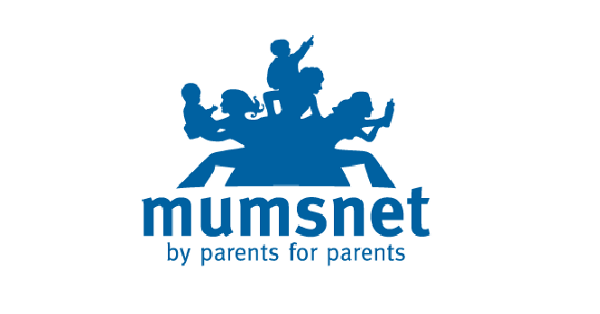Online political campaigning and biscuits: The case of Mumsnet

Founded in 2000 by Justine Roberts, Mumsnet has become part of the British social landscape. The anonymous forum aims to make parents’ lives easier by pooling knowledge, advice and support. It offers information on pregnancy and childcare, product reviews and even runs a book club. The website tries as far as possible to let the conversation flow, and not to over-moderate. This means, of course, talk can turn political.
When Mumsnet speaks, politicians listen — BBC, 2011
Power of MumsNet grows as Gordon Brown hails it as a ‘great British institution’ — The Telegraph, 2010
How every politician has answered Mumsnet’s ‘favourite biscuit’ question since 2009 — The Telegraph 2016
Mumsnet has both spurred and created their own political campaigns. The Let Toys Be Toys and Let Books Be Books campaigns to de-gender children’s products both originated from the forum. And the forum has launched several of its own campaignings. Ranging from better care for miscarriages, lack of support for parents with children of additional needs, and better sexual education. To name only a few of the many campaigns past and present.
Mumsnet as a Stakeholder

Due to the many campaigns and demographics Mumsnet is seen as an important stakeholder by central government and relevant ministerial departments.
Their campaigns won the support of then Minister of Education Michael Gove. Mumsnet has been been considered a key stakeholder on children and children sexualisation issues by central government. And the submitted evidence and views from Mumsnet has been endorsed by the Bailey Review into the Commercialisation and Sexualisation of Childhood (Pedersen and Smithson, 2013).
Politically Engaged. But who?
Demographic data on Mumsnet is dated and sketchy. The website conducted a census in 2009 with a sample of 5,201.¹ The average user was middle aged, relatively affluent, degree educated, and with 2 children at the time. The data cannot be used to talk about the current userbase, but it can be used to contextualise Mumsnet of the past.
Toby Young writing in the Telegraph describes the userbase as made up of…
peopled exclusively by university-educated, upper-middle-class women who are only “swing voters” in the sense that they swing between voting Labour, Lib Dem and Green.
The 2010 British General Election
 In the run up to the 2010 General Election all parts of the British media dubbed it the ‘Mumsnet Election’. For the first time that Mumsnet was used as a campaign tool by the Labour, Conservative and Liberal Democrat parties. Party leaders conducted live-chats on the platform, soon followed by other politicians. The hype was large and high. But ultimately it was misplaced.
In the run up to the 2010 General Election all parts of the British media dubbed it the ‘Mumsnet Election’. For the first time that Mumsnet was used as a campaign tool by the Labour, Conservative and Liberal Democrat parties. Party leaders conducted live-chats on the platform, soon followed by other politicians. The hype was large and high. But ultimately it was misplaced.
The ‘Mumsnet Election’ was overblown and a case of typical sensationalism. But what we do have is a case study of several political parties using an online forum as a way of political campaigning.
The leaders of each of the three political parties, David Cameron, Gordon Brown, and Nick Clegg had live-chats on Mumsnet. Answering a variety of questions on party policies, the economy, childcare and parental issues. Included in these questions was the favorite biscuit question. A seemingly harmless question asked again and again to later politicians on the site. Disarming and cute.
Here we have an example of what ‘real’ people ask politicians. Both serious, humorous and banal.
Why does this even matter?
Mumsnet did not have a large impact on the 2010 General Election. But what it is, is an example of early online political campaigning we can learn from.
Politicians when they do something want returns. They’re often savvy and both protective and possessive of their constituents. Whatever you may think of them, the ones in office got elected somehow.
So why was Mumsnet chosen to conduct campaigning on, especially given the anonymous nature of the userbase? I believe these reasons are why:
- The demographics of the userbase fitted the bill of typical floating voters in the run up to, what was seen, as a tight election
- Given the topic the userbase became self selecting through selection bias and attraction between users of the same views, or put simply that birds of a feather flock together created an attractive userbase.
- There was one very savvy political Special Adviser (“SpAd”) in one of the political parties main office, and the other two followed suit. Said SpAd must have been very convincing.
Of Tea and Biscuits
Given the humours nature of the Biscuit Question I’ll enlighten you dear readers. I was especially curious myself who liked what:
- Ed Miliband — Jaffa Cake
- Nick Clegg — Rich tea if dunked; hob knobs if not
- David Cameron — Oatcakes with cheese
- Gordon Brown — Anything with chocolate
Wrapping up
Mumsnet is an interesting case study of early online political campainging on a website 10 years ago.² You can see why politicians saw it as important, even if there was concerns about anonymity. And in retrospect it did not have much of an impact on election. But it is an early example of what people take a bit more for granted now. And a great episode illustrating how people like to interact with politicians online with both serious and humorous questions.
Footnotes
- It should be noted that a ‘census’ is a survey of an entire population strictly speaking. Any survey which is does not have the full population responding shouldn’t be called a census by definition. ‘User survey’ would be more apt. I relay this interesting fact from a time I was admonished by a very grouchy statistician.
- Replace with social platform, online forum, online community, online mediated community, etc depending on your favorite jargon and academic discipline. Pick your poison basically.
Note: This blogpost was originally posted on Medium in August 2019.




